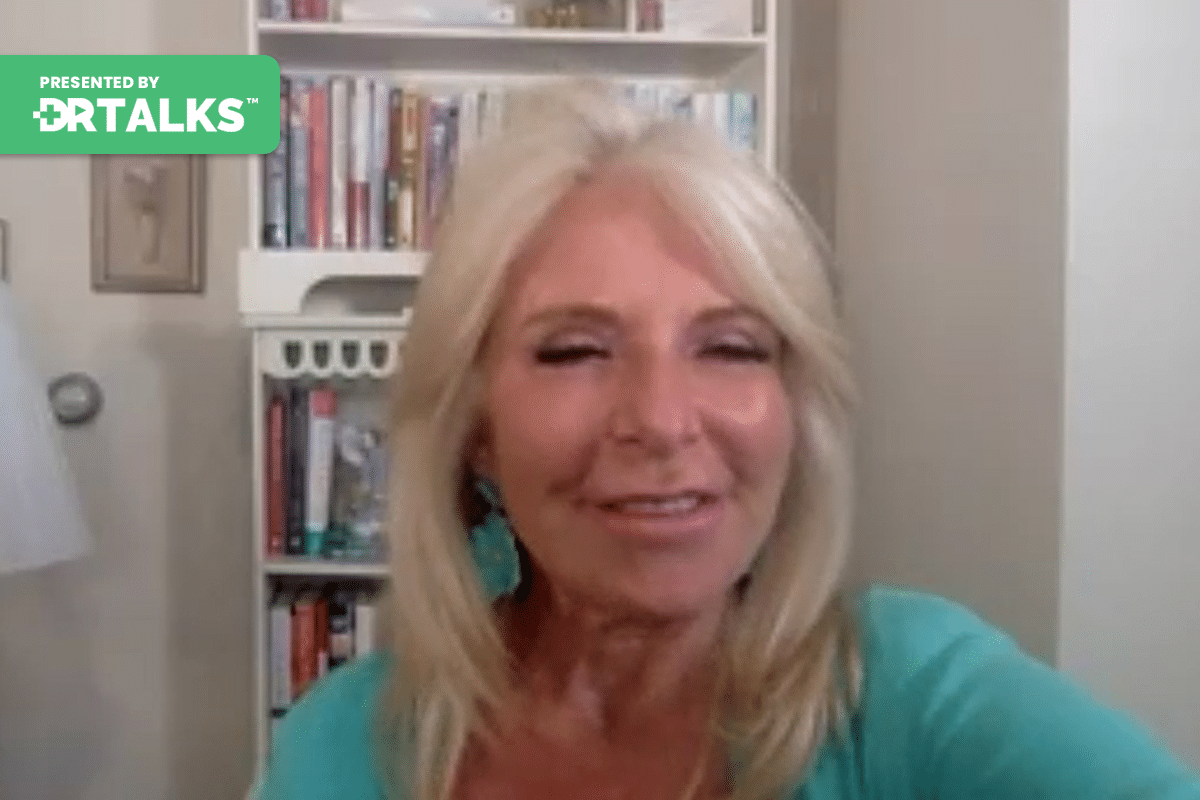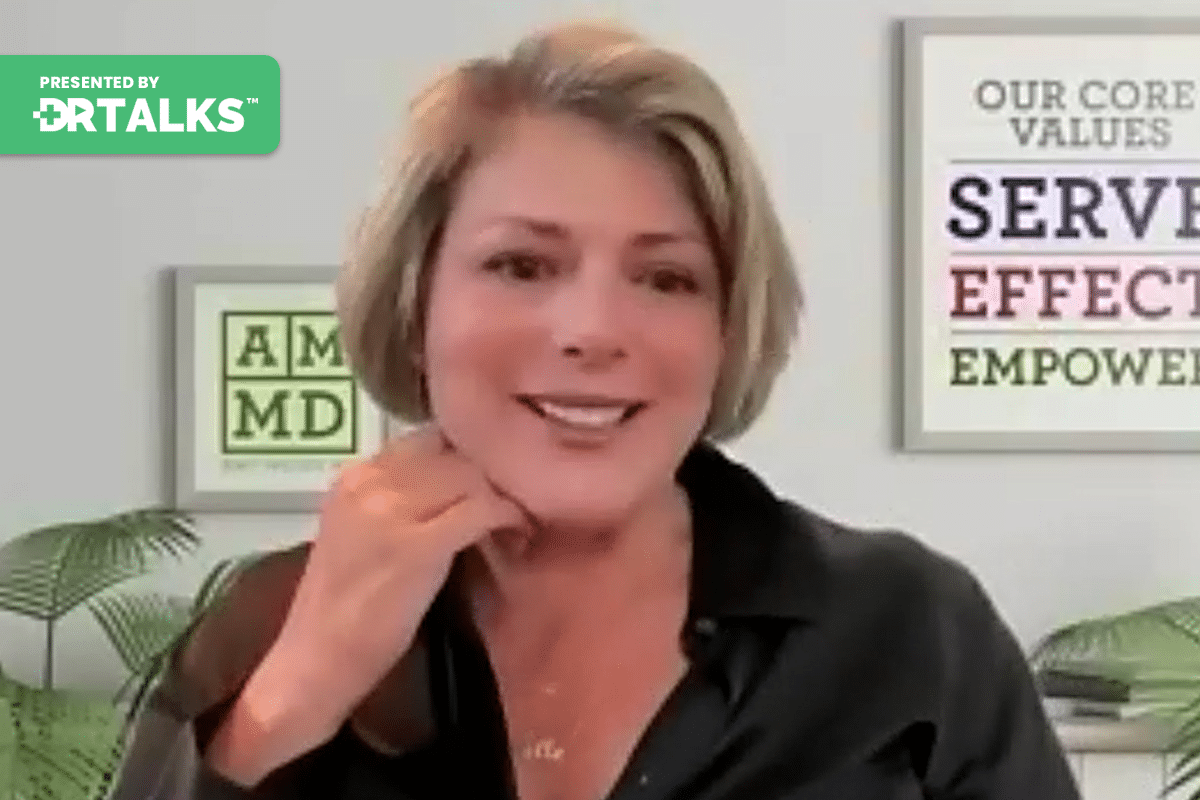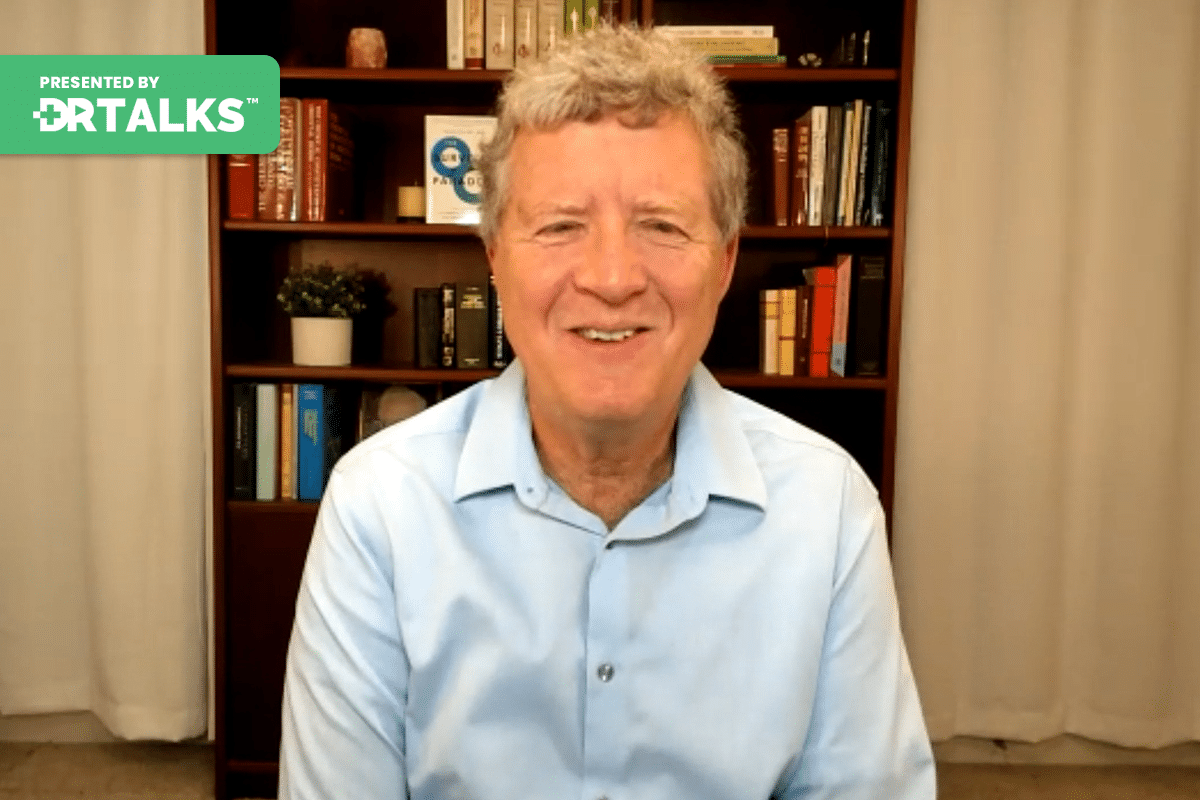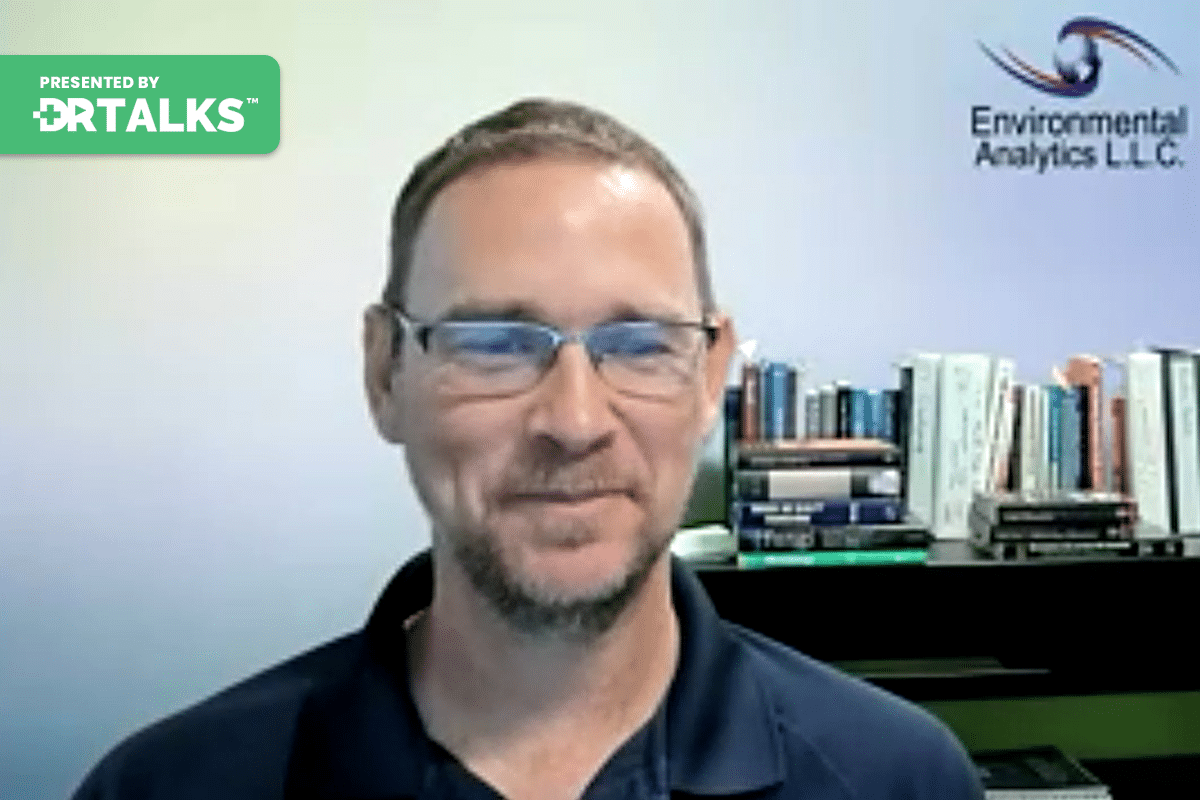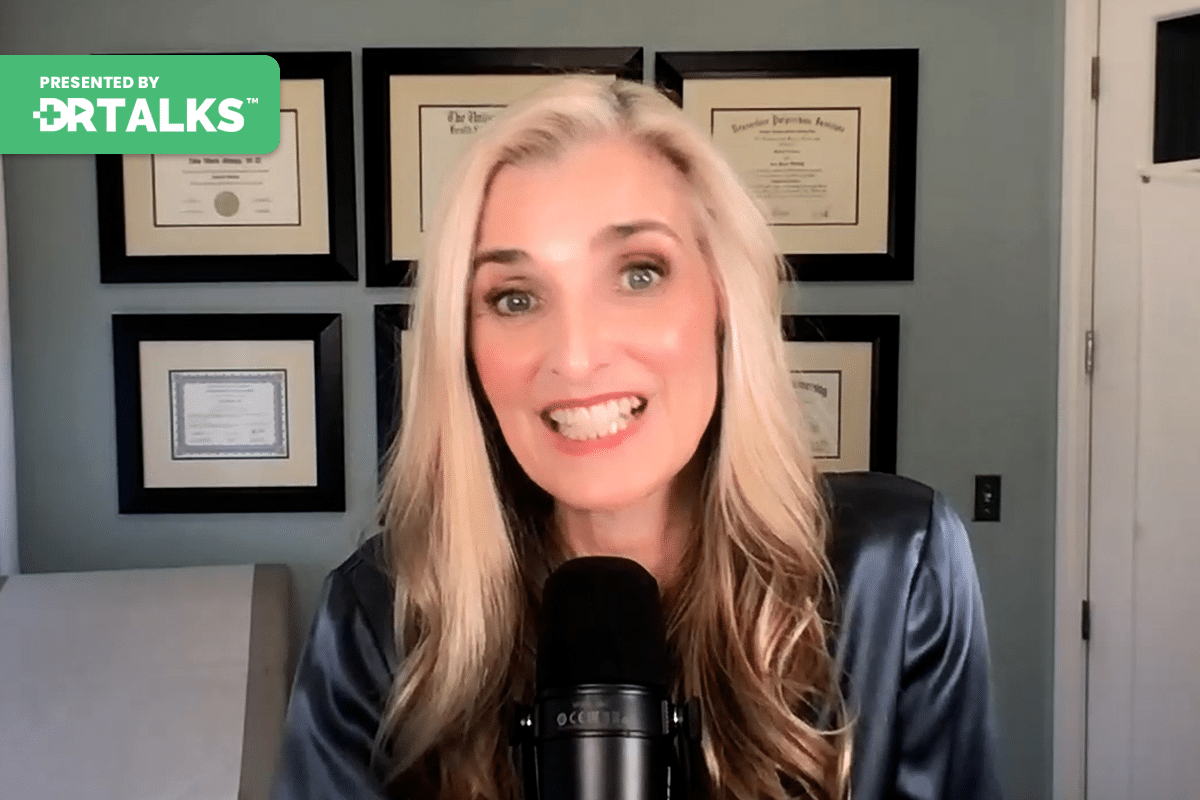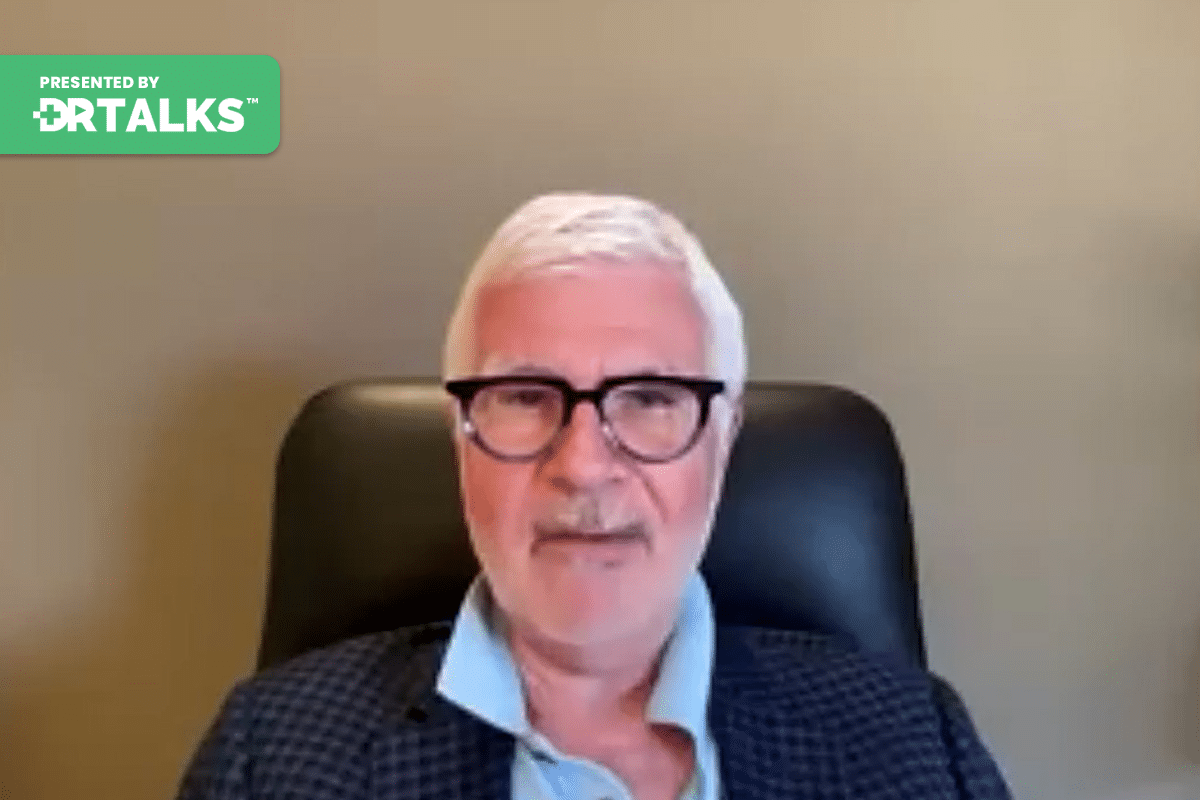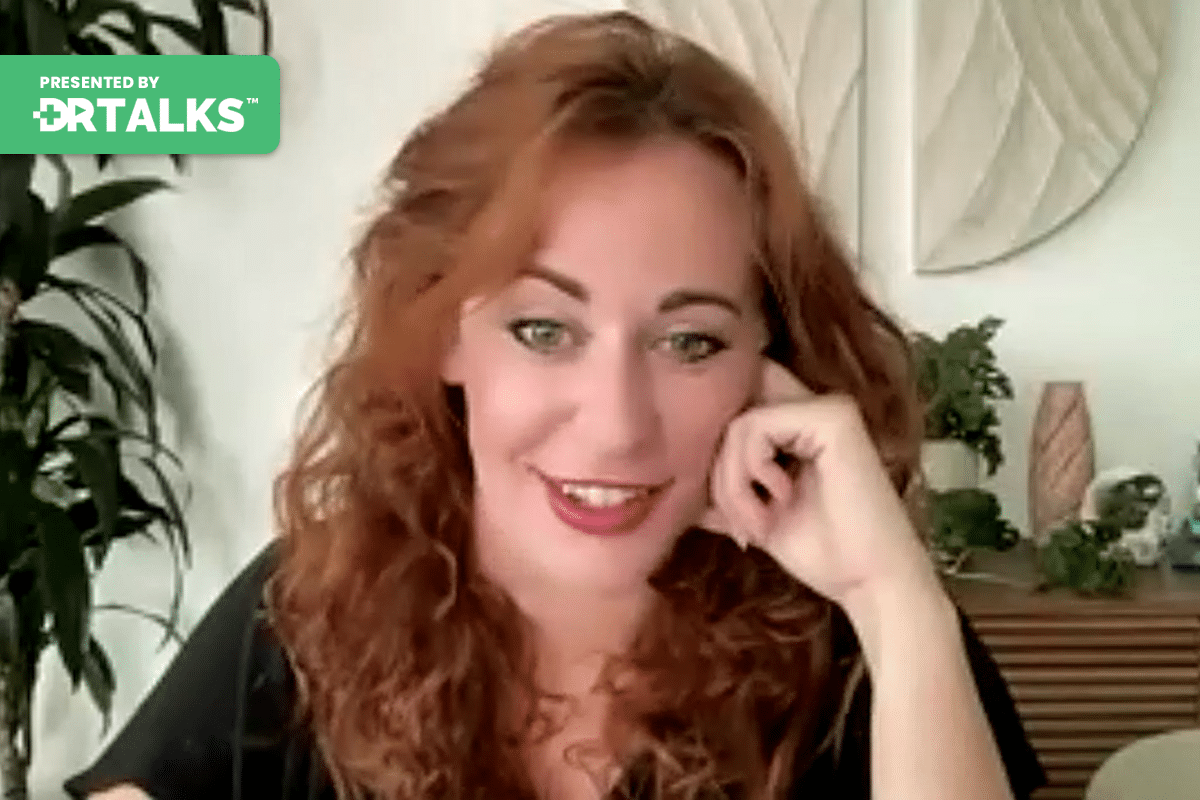Join the discussion below
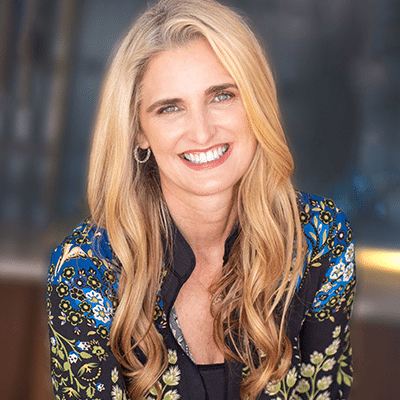
Dr. Ann Shippy is Board Certified in Internal Medicine and Certified in Functional Medicine. She operates a successful private practice in Austin, TX where she is known for her compassionate, attentive, and tireless approach to caring for her patients. She has gained a considerable reputation for successfully diagnosing and treating... Read More

Marcelle Pick, OB/GYN, NP, is passionate about transforming the way women experience healthcare through an integrative approach. She co-founded the world renowned Women to Women Clinic in 1983 with the vision to not only treat illness, but also help support her patients in pro-actively making healthier choices to prevent disease.... Read More
- Learn how stress exacerbates mold-related health issues and its connection to obesity
- Understand the intertwined relationship between COVID-19, stress responses, and deteriorating health over recent years
- Recognize the importance of managing stress to mitigate mold toxicity effects
- This video is part of the Mold, Mycotoxin, and Chronic Illness Summit
Related Topics
Adaptogenic Herbs, Adrenal Dysfunction, Adrenal Support, Autoimmune Disorders, Compounded Dhea, Cortisol Levels, Cortisol Reactions, DHEA, Gi Health, Hormonal Issues, Hormone Imbalance, Immune System, Licorice, Physiological Dose, Stress Reduction, Testosterone, Thyroid Dysfunction, Toxic MoldAnn Shippy, MD
Welcome to another episode of Mold, Mycotoxins, and Chronic Illness. I’m your host, Dr. Ann Shippy, and today we get to visit with one of my dear friends, Marcelle Pick. She has been helping women for decades, and she’s had such an enormous reach through TV shows and her world-renowned women-to-women clinic that she established in 1983. She’s prolific with writing, both in blog forms and in books. She is on a mission to help women not only treat the root causes of their illnesses but also figure out how to prevent them. One of the things I’m most proud of about her because it’s such a high bar is that she’s on the faculty of the Institute for Functional Medicine. This is the material that she teaches. It’s all about hormones. She’s extremely knowledgeable, and we’ve got the privilege to have her talk today about adrenal dysfunction, stress, and the role of toxic mold. Welcome, Marcelle. Thank you.
Marcelle Pick, OB/GYN, NP
Thank you. We have a lot to say.
Ann Shippy, MD
We do. There’s so much here that we can help with. Maybe the best place to start would be with some definitions. You have done so much work around the adrenal glands, the role that they play, and what happens with the human body. They are just so pivotal in how the body works. Maybe start there with how you would describe adrenal dysfunction.
Marcelle Pick, OB/GYN, NP
Sure. Absolutely. The unfortunate part is that in the conventional world, or what we call the allopathic world, we talk about stress and we just say, Well, just deal with it. The body doesn’t do that so well. We have been under enormous stress for a long period. We then develop four different phases of adrenal dysfunction, and we can just assume what it is or do some testing to find out where people are. What I found in my practice is that if people have stress for too long, oftentimes it starts in childhood and goes all the way up into adulthood because we adapt behaviors from their childhood that are sometimes dysfunctional, and then we have stress from the world. We have stress from all of social media. We have our job, our relationships, and our family.
Cortisol, which is the most important hormone because we can’t live without it, starts to go a little haywire. When that happens, it causes havoc everywhere in the body. Our body is meant to adapt, and we are meant to have some stress. We went to have this shut-up valve, which is the parasympathetic nervous system. Most of us are in overdrive, fight, or flight; we call it that all the time. When that happens, we think and stress. I’ll just deal with it. I wish it was that simple.
Ann Shippy, MD
We’ve just started to think it’s normal, especially in the last four years.
Marcelle Pick, OB/GYN, NP
The unfortunate part is that when cortisol levels are elevated for any length of time, what goes up must come down. What we see in stage four is that people’s cortisol levels are flatlined, and they are just feeling exhausted all the time. Then we see the consequences. We see their immune system is affected; we see many more autoimmune disorders; and we see thyroid dysfunction because adrenals adversely affect the thyroid and make T3 inactive many times. Then we also have hormonal issues. I call it hormones from hell, pardon the language, but they become dysregulated. We also have GI, which is affected as well. For years, we didn’t have any science. I’m a geek. I like to see the science behind it. As I teach for the Institute of Medicine, I will always look at the research every year. What we find is that it directly affects our immune system, according to the studies. It increases your metastatic disease. If you have cancer, it increases autoimmune disorders pretty significantly. It changes hormonal status with PMS and PMDD, and it also upregulates cytokines or inflammation.
If you’re dealing with toxic mold that’s contributing to the adrenals or vice versa and you’ve got both at the same time, we have a very significant effect on our health and we can’t get out of it. We might be treating them all, treating the multitude more. But if you’re not controlling your adrenals too if they’ve been affected, which they almost always are, then you’re left with them, and I’m still not feeling better. I’m doing all the things you’re telling me, and then we have to pull in the adrenals as well because they also affect glucose and fluid retention. We’ve got all these things that the adrenals affect systemically, and a lot of people don’t understand that if we have too much need for cortisol, the body will say, “Nope, I’m not going to produce estrogen, progesterone, testosterone, DHEA, and the amounts that you need”. It very adversely affects our hormones too. It is a big deal. It is a big deal to have too much stress, and it is a big deal to have toxic mold.
Ann Shippy, MD
Well, you just said so much here. There’s so much to unpack. This is a great overview of the issues that need to be addressed. Let’s go back a little bit to those earlier stages because even if you have not gotten to stage four and you’re dealing with toxic mold, you probably need to be looking at those earlier stages. I would love just a little overview of those earlier stages and what you see as effective for being supportive of the adrenals in the early stages.
Marcelle Pick, OB/GYN, NP
I’m one of those who believes that we have to test. I am no longer able to guess, and I know there are a lot of people who have written books recently that say you don’t need to test and agree with that at all. I’ve been taken so many times when I thought it was this, and it’s like, “Oh my God, it’s this.” How I intervene is going to be different if I see up and down cortisol. I am going to use herbs to accommodate what those are. I am going to make recommendations. I don’t like to use the word stress reduction because that’s so overused. But what is it that, for you, is going to help you stay out of that mindset in which your mind’s racing all the time? I’m a ballroom dancer. That’s where I get it. But somebody else might do something else. For some people, that’s not meditation. They have such a hard time not thinking, so it might be a tapping technique, or it might be walking in the woods, or it might be using a form of polarity, building a crisis, or something that gets out of your body. We have stage one, where the body’s just beginning to have reactions to cortisol, and it’s in fight-flight, but not all the time. You still can use nutrients much more easily.
When we start getting into stages two and three, the body’s no longer able to shut into the parasympathetic state and get that body to kind of respond. We’re willing to stage four, and people are feeling horrible. I think finding out where you are is crucial because then we have a sense of how we are going to intervene. For some people, it’ll take me a year to turn them around. What I found so often is that if people didn’t deal with the stressors—the mold, the Lyme, the whatever—and the emotions, because we do have emotions that are packed in here, perfectionism, being hard on yourself, having high expectations… Women are terrible like that, multitasking, not knowing how to delegate, perpetuating that cortisol without being parasympathetic. I can use herbs until I’m blue in the face to change it. In my opinion, we need to test and find out where we are, and I might again repeat the test to see if I shifted it enough and if I need to intervene differently as well.
Ann Shippy, MD
Which tests do you like the best, and which are most helpful for you?
Marcelle Pick, OB/GYN, NP
I have been using diagnostics my entire career, and I’ve changed and used other labs, but I found that this company so often says what I suspect when I relive with the patient how they’re feeling when I see the test results more than any other company. I’ve used them for 30 years. A long, long time. With just magical results, when you’re using the test results in conjunction with their matrix and their life story, what are the things that are going on in their life, what went on in their childhood, what is their mold exposure, and what are they doing about it? Are they living in a mold-infested house? All those play into how they get treated in the long run.
Ann Shippy, MD
Beautiful. That’s a great overview of the different stages of adrenal dysfunction. I’d love for you to spend a little bit more time on stage because I think that’s when people get to the point where they know that mold is an issue and they’re struggling with how to get well. That’s a lot of times where they are. I agree that it’s good to test to see because some other things can mimic Stage 4 adrenal dysfunction. I would love to explore you a little bit more with you on your approach there.
Marcelle Pick, OB/GYN, NP
Sure. I’m not a big fan of using cortisone. I used to back in the day, and I found it was so hard to get people off. I will use as many adaptogenic groups as I can. I’ll use Cordyceps rhodiola ashwagandha, and I will also use licorice. I’ll either use DeCosta rice licorice or I’ll use it often, three or four times a day, not late at night because it’ll keep them up. It gives them a sense of, “Oh my God, my get-up-and-go, always come back.” The other important thing is DHEA. I use it quite often with my patients. What I say to them is, “Look, I want you to get up and go to come back. I want to give you the wherewithal to be able to have the energy to go do the work you might need to do with your home or even look at the emotions because they’re always there together.” If they don’t feel well, they don’t have the energy to do it.
I prescribe DHEA in a compounded form. I don’t use it over the counter. I use one milligram per drop, and I use one milligram b.i.d. for four days, and I increase it. Then, over the next four days, I reach generally about five to six drops twice a day. The physiological dose of DHEA is 25 milligrams. We produce a day, and I don’t find I ever need that much. That’s oftentimes how it is prescribed if you can get it over the counter. But the drops are fabulous, and people sometimes only get three. That’s all they need to get to four. They feel a little bit more irritated, and you wonder if they are getting converted to testosterone. But generally, five make magic, and then they help you build.
Ann Shippy, MD
That is such an interesting approach. That’s such a great way to be able to fine-tune. If they’re finding they don’t need as much, they can start tapering down because there’s so much to taper down. that’s great. What do you use as a base?
Marcelle Pick, OB/GYN, NP
Oftentimes, it is alcohol. If people have a sensitivity to that, we can use olive oil as well. It doesn’t work as well. But the foundation is a small amount of alcohol, and it is incredibly well tolerated. People notice the differences almost immediately.
Ann Shippy, MD
And there are no downsides. Do you ever see any downsides from just this low dose?
Marcelle Pick, OB/GYN, NP
No, I don’t know. You’d have that occasional person who said, “I feel angry,” and then I would convert it to testosterone. They probably have high sexual rebounding globulin as well. Those are people that you want to fine-tune a little bit differently. But generally, I would say it’s a game-changer for people. They will come in saying, “Don’t you ever take me out. This is what you want; you need it. Go that long. Give me a little chance here.” But it makes a huge difference for them.
Ann Shippy, MD
Yes. It makes so much sense too, with everything being so interconnected and that whole cortisol steal that happens where just the body’s slurping up all the sex hormones to make the cord as a whole. Yeah, this is a great strategy.
Marcelle Pick, OB/GYN, NP
Yes, now it makes a big difference. They feel like they’re back, that their brains are back, and that they can do the next things that they need to do, which is so important for them because otherwise they just feel like they’re never going to get better and they lose all sense of hope.
Ann Shippy, MD
That is so true. That is exactly what this summit is about helping people find enough tools in their toolbox, the right questions to ask, and the things to ask for so that they get that hope back.
Marcelle Pick, OB/GYN, NP
Yes. The other part that I want to reiterate, too, is that 95% of our beliefs are unconscious. It’s bringing some of those understandings to the surface. There’s something called the ACE score, and looking at your ACE scores, I have a little different opinion about that. The ACE scores an adverse childhood event score, and Dr. Phil kind of found that in 1998, looking to see if you had a high score of four or more on the questionnaire, your chances of early death, suicide, heart disease, or cancer were much higher. But that’s looking at big T and little T. I think that we have micro-traumas that are very significant and also affect our health status. It’s understood that we didn’t create this. Nobody is that silly. No one would ever do this. However, some of the thinking patterns that we have and some of the big automatic behaviors from the primitive part of the brain, the amygdala, will sometimes create behaviors that cause more stress for us. It’s understanding yourself at the same time that you’re working on your dreams. That’s why I say let me give you the energy that you need to be able to correct things through a balance.
Ann Shippy, MD
Are you using a score in your practice? What are some of the things that you would like if you were going to have the micro-terror question? What kinds of things are you thinking about?
Marcelle Pick, OB/GYN, NP
Once your self-esteem is affected, you’re growing up. Were you young, particularly since this is for women, and were you ashamed of your body? Were you obsessed with what you ate for your meals? Did you have a parent who was somewhat condescending regularly? Did you feel like you had to become a perfectionist? Had to be a good girl? I use my example in my home. I wouldn’t have scored highly on that score, but my father was a rage-aholic but never yelled. It was just angry-looking.
My friend would come over. I established the same behavior; I became a good girl and tried to make everything just so. The unfortunate part is that you become precocious. Then in life, you’re always kind of looking over your shoulder, wanting it. That’s the thing that increases cortisol production. It’s learning a lot and being accepted. I think that was what that look meant. It’s like, well, check it out and see. Is that what that look meant? You could be wrong a lot of the time. If you’re feeling poorly about yourself, that’s going to be a piece that you take in to think about. “Well, he must have been mad at me.” No, he just got a flat tire or something like that.
Ann Shippy, MD
It probably had nothing to do with you.
Marcelle Pick, OB/GYN, NP
Nothing has to do with you. That’s when it comes to asking questions, however embarrassing they might be. “Did I say something to offend you, or are you upset with me about something?” You do that enough. It’s like, no, it’s not about me at all. But those are the small micro-traumas.
Ann Shippy, MD
It takes a lot of courage to ask because sometimes you might not get the answer that you want. You have to be willing to hear the actual response.
Marcelle Pick, OB/GYN, NP
Very true. But all of that, unfortunately, affects our biochemistry. If we look at the science, what we see is that the ACE score is connected to so many things, including autoimmune disorders, immune dysfunction, hormonal imbalances, PMS, infertility, and premature bearing failure. we have some very significant things that we can connect the microdots to as well as a big T little T. Now, is that all of this? Of course not. It’s a piece to the puzzle in a piece.
Ann Shippy, MD
When you have that high ACE score or micro-additional score from what you can, a lot of times you just read by sitting down with somebody. What are the most effective things that you see to help heal from those traumas?
Marcelle Pick, OB/GYN, NP
I don’t think there’s one effective thing. I think that’s a key piece for me. I’m going to say something outrageous. I’m old now, so it’s like that. I don’t think that ongoing one-on-one therapy will get you there.
Ann Shippy, MD
I have to agree, just from what I see happening to people.
Marcelle Pick, OB/GYN, NP
It just doesn’t change anything. I remember thinking this early on in my career when I had somebody who’d been sexually abused. I’ve been in therapy for 15 years, and it still took me an hour to do a pelvic exam because they were so terrified. I early on realized that we needed to do something different. I referred a lot of people to the Hoffman Institute, which is in California. They have, throughout their, I believe, 70-year existence. They are in 40 different countries. It could also be something like Joe Dispenza’s work. It depends on what works for you. Looking at what we need to do, it is helpful to understand therapy, perhaps for a year so you see the connections, but after that, it’s the bodywork. Why do we cry at massages and have Feldenkrais polarity because of a lot of our issues? I have a chapter in my book about the issues with your nutrition that’s exactly right. Restore them there. It’s finding out how to do this in conjunction with the mold and the adrenals because otherwise, the adrenals won’t get better.
Ann Shippy, MD
It’s hard to heal the taxed adrenals.
Marcelle Pick, OB/GYN, NP
Yeah. But it can be done. I have so many patients in my practice that are like,” Oh my God, the AHAs that I had and I can’t. I’ve never felt better in my entire life.” I realized all these pieces and did something about them. Tapping can work with some people, and there’s a lot of trauma work that’s online now that can work. It depends on what your comfort level is, and sometimes it takes a couple of things to try out any helper as a program that’s also very effective as well.
Ann Shippy, MD
Well, I’m a huge Dispenza fan. I think his work is incredible, and all the things that you’re listing are also interesting. It’s one of the things that I’m seeing. I don’t know if you’re seeing this in your practice, but people are finding their therapies.
Marcelle Pick, OB/GYN, NP
Don’t get me started. one of the last talks, and as I teach for the Institute of Functional Medicine, I stay very on top of that at the annual conference with the psychiatrist. The psychiatrist was saying he’s not using medication at all anymore and that he’s now only using ketamine. Some people would even say ayahuasca and some of the other things are very similar. They’re very effective in helping unravel, to unwrap some of those pieces, and to give you a better spiritual connection and the relationships that people let go of, as well as the connections that they had with people they didn’t have connections with. I think we put it in the water. We needed the water right now. They said no. It was pretty impressive.
Ann Shippy, MD
Out of the things that you mentioned, the one that’s the only one that’s legal so far is ketamine. I think there’s a lot in, I guess, other than Washington, Oregon, maybe Colorado, and some of the other psychedelics. At least it is not illegal, but it can be. It’s an old anesthesia medication that is given at the correct dose in the correct setting. That’s what I’m finding with the patients who choose to take ketamine because it’s so important. To know the environment that you’re going to be in. I’ve had a couple of people have horrible experiences because they didn’t have the right support when they were unpacking some traumatic things. For our audience listening, if that appeals to you, do a lot of research, and then make sure it’s worth it to pay a little bit more to have an excellent team so that if some things come up that actually kind of surprise you, which often happens, we’re so good at suing the experiences, emotions, and beliefs in our tissues and not having them in our conscious mind. if some surprises come up that you have good support for.
Marcelle Pick, OB/GYN, NP
Hands down, and also, some of the programs have doulas, meaning that they have somebody who’s with them before having the ketamine. I think that’s probably the best option: to have your one person if you’re kind of concerned about what’s going to happen for you, and then they’re with you through the whole experience as well, so that they kind of birth you, if you will, into someone I knew you.
Ann Shippy, MD
I haven’t heard them. I’ve just heard them referred to as counselors. I love the idea of a tool because that means they’re going to be with you through the whole process, and they’re not going to leave you. They’re going to make sure you are ready.
Marcelle Pick, OB/GYN, NP
Exactly.
Ann Shippy, MD
To the new awareness. That’s beautiful. Well, I didn’t expect we were going to get into this segue. I think it’s an important thing to know about, and especially for the severe and significant trauma, I think it can be so healing and like one of those keys to unlocking the adrenals.
Marcelle Pick, OB/GYN, NP
Even for the micro-traumas, I think what I see with micro-trauma is “I was fine. My childhood was great,” and I keep seeing the backs of their adrenals and other issues of a cycle. Let’s kind of revisit this, and sure enough, they’re the ones that are kind of sitting on a little bit more than they realized.
Ann Shippy, MD
Yeah, that sounds like your story’s a perfect example.
Marcelle Pick, OB/GYN, NP
Exactly.
Ann Shippy, MD
Yeah. Is there anything else that you want to share about this more stage-four end-stage adrenal dysfunction, like anything else to think about?
Marcelle Pick, OB/GYN, NP
I think what’s important is to know that you can get better. I think sometimes when people are in that situation, it’s like nothing I’m doing is working. It’s not making a difference. We just have to find the right key. When you do and we’re all different, it might be that you need more to make some craziness. You might need more protein than Jane did, or you might have to have just a teeny bit more carbohydrates than Sarah, but it’s finding out the keys for you. Maybe this Siberian ginseng didn’t work, and you have to try something else. It’s being willing to know that we are unique and have very different things. But is it also going to be impulsive to have somebody look at your history? How sick were you as a kid? What kind of stress did you have as a teenager? Did you have lots of antibiotics? All those were playing into that big puzzle as well. Of course, looking at the adrenal results, you know that you can get better. I mean, that’s my takeaway from this issue. Absolutely can. But we need to know the right keys.
Ann Shippy, MD
That’s such a huge place if you’re telling yourself, “Oh, I don’t know. I don’t think I’m going to get better. I can’t do this. It’s not going to happen.” Your body’s listening.
Marcelle Pick, OB/GYN, NP
Totally. Your body believes every word you say.
Ann Shippy, MD
Reframing it. How did you say it exactly? I liked what you said.
Marcelle Pick, OB/GYN, NP
Which part? I don’t know.
Ann Shippy, MD
Which is like to. To the knowing. Like, I know I’m going to get better.
Marcelle Pick, OB/GYN, NP
Yes, it’s just that you’re going to have to say that to yourself over and over and even perhaps use and tap with it, which is that I do have all that I need within myself to get better. But it’s going to be a mantra that you have to say because when you’re feeling down and dirty, it’s like this is never going to get better. Well, that’s not going to help you. Never. I’m never going to get better. It’s like, no, my body. If you think about our bodies, they’re amazing. They are amazing. Any kind of key into that release would be important.
Ann Shippy, MD
Are there any nuances with the patients who have mold as a taxing factor and help the adrenals heal, or even Lyme? Are there any situations where you would think about different things?
Marcelle Pick, OB/GYN, NP
It’s knowing all those pieces at the same time. I live in Maine, and it’s a huge problem here, and people are not good at diagnosing it. I have a multitude of tests that I do looking at antibodies for all the co-infections as well as lymes, and I pick them up pretty well. Even at Quest. You can do that. finding that out for sure and then looking and having your house. All the things that you’re going to be talking about in this summit, but at the same time, we have to look at adrenals. I think that’s been missed many times. It may be the piece that I start with first, and then I will add the other pieces to the equation and certainly the DHEA so that they feel a little bit better. It’s kind of like, “Oh, I have a real breath of fresh air, so then I can kind of tackle the other things,” and mold can cause people to die off and not feel so well. It’s like pieces at a time. Knowing that many people get better.
Ann Shippy, MD
And then, as you’re probably seeing, I haven’t been to Maine; I need to come visit you, but if you have your high, you probably have a lot of people that have both Lyme and mold.
Marcelle Pick, OB/GYN, NP
We do, especially now that we are so airtight. They have those. Lyme is such an interesting thing to deal with too, and I think both make use of the worse, and all of that goes on. We’re having to unpack all of it. But also, I think understanding the concept of Joe Dispenza is that even though all those things are going on, changing our mindset, understanding that 95% of our beliefs are unconscious, and bringing those to the surface is amazing how you can heal. I have an amazing patient story who did Joe Dispenza. I diagnosed her with breast cancer several years ago, and she just had a lumpectomy. It was just a small cancer, not a big deal. She had a mammogram the following year and didn’t do anything. A couple of years later, the cancer was coming through the scan when she saw a breast surgeon. She did have a mastectomy, but she had metastases in her legs, and she could hardly walk, causing her so much pain. She was on pain medication about every 30 minutes. But that didn’t even help her. They wanted to amputate her leg. She said no; her daughters got into Joe Dispenza. And she had this healing session for several hours with many of the heroes. I called her to say, “How are you?” I was going to say goodbye because I thought she was in hospice. She goes, “Hey, how are you?” She just went on a hike two weeks before that. I got another note from her saying, “I’ve never felt better in my entire life.” I didn’t realize how much I was holding on to and how much deep-seated grief I had, and I let it go in the work she was doing, and now she’s working on his team. Some miracles are happening around us. I want everybody who’s listening to this and may not be feeling well to know that whatever your avenue is, you can get better with no question about it.
She did have a mastectomy, but she had metastases in her legs and she could hardly walk through, saw so much cream on pain medication about every 30 minutes. But that didn’t even help her. They wanted to circumvent her leg. She said no one, her daughters got into this cancer and she had this healing session for several hours with many of the heroes. I called her to say, How are you? Because I was going to say goodbye because I thought she was in hospice. She goes, Hey, how are you? She just went on a hike two weeks before that. I got another note from her saying, I’ve never felt better in my entire life. I didn’t realize how much I was holding on to and how much deep-seated grief I had, and I let it go in the work she was doing, and now she’s working on his team. some miracles are happening around us. I want everybody who’s listening to this and may not be feeling well to know that whatever your avenue is, you can get better with no question about it.
Ann Shippy, MD
Oh, Marcelle, I loved the way that you put all this together. You are so inspiring and have so many pieces of the puzzle. Thank you for that inspiration.
Marcelle Pick, OB/GYN, NP
Yes. It’s true, though, a lot of times that we see it.
Ann Shippy, MD
Yes. Seeing things that aren’t even supposed to have, like genetic neurodegenerative disorders, and seeing those heal at the Dispenza’s workshops is like, Oh, okay, I guess you can heal from mold. If you can heal something that should be healed, we can heal everything. Let’s tell everybody where to find you because you are such a wealth of information, and I want people to be able to tap into that.
Marcelle Pick, OB/GYN, NP
There are many places where they can go to marcellepick.com and see me there. I am also one of the people who has a women’s health series. I know we will, which is another website with practitioners, and I will be very soon. I’ll be putting it on myself. I’m going to be a contributor for a magazine that’s got quite a large audience, so I’ll let people stay tuned for that. We’ll be writing articles for that as well.
Ann Shippy, MD
But I thought that was an air-on, and, oh, is there something else?
Marcelle Pick, OB/GYN, NP
I also have a podcast, so people can look at the podcast as well, but you can see all that on their website as well.
Ann Shippy, MD
Okay, well, you are just such a master at creating content that’s so easy to understand and that’s so impactful. Thank you for everything you’re doing, and thanks for joining us today.
Marcelle Pick, OB/GYN, NP
It’s always my pleasure. It’s lovely seeing you again.
Ann Shippy, MD
It’s great to see you.
Downloads

